If you want to know about the types of foundation or types of footing or concrete mix design, please click the link.
Using steel rods, also known as reinforcement bars or rebars, is an essential aspect of reinforced concrete construction.
1) How Can I Strengthen the foundation columns?
i) If the foundation is not very deep
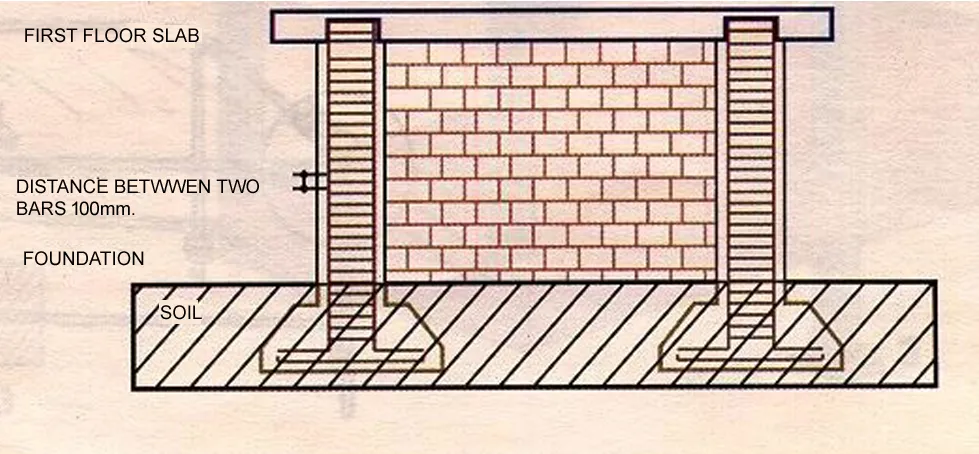
- If the foundation is not very deep and is less than about 5 feet (or less than half the height of the first storey) you need not have a beam at the plinth or ground floor level. You can run the beams only at the first-floor level.
- But please make sure that the stirrups are closely spaced at a distance of not more than 100mm (4 in.) as shown in the drawing.
- You should go down with this spacing for a distance of at least 300 mm (12 in.) into the foundation footing (the bottom of the foundation) and go up right up to junction of the column with the beam at the first
floor level.
ii) If the foundation is deep
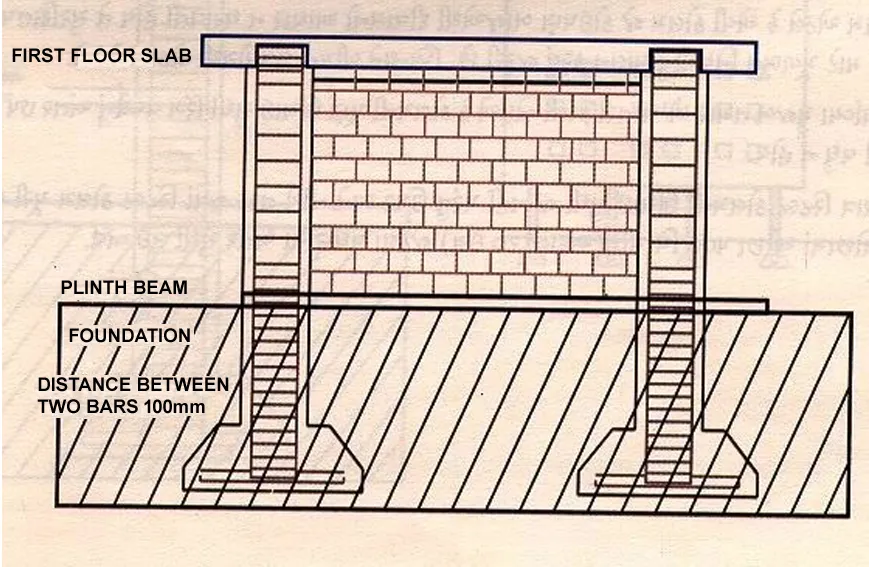
- If the foundation is deep, that is, going more than half a storey in depth below the plinth, then you should connect the plinth using beams.
- Please notice the deeper foundation shown in the drawing and also the plinth beam provided in the ground level.
- In this case the stirrup spacing of 100 mm is required to go down from the plinth level up to 300 mm into the footing of the foundation. Also, this spacing is required for 500 mm going above the plinth.
2) Is it safe to use stilt columns?
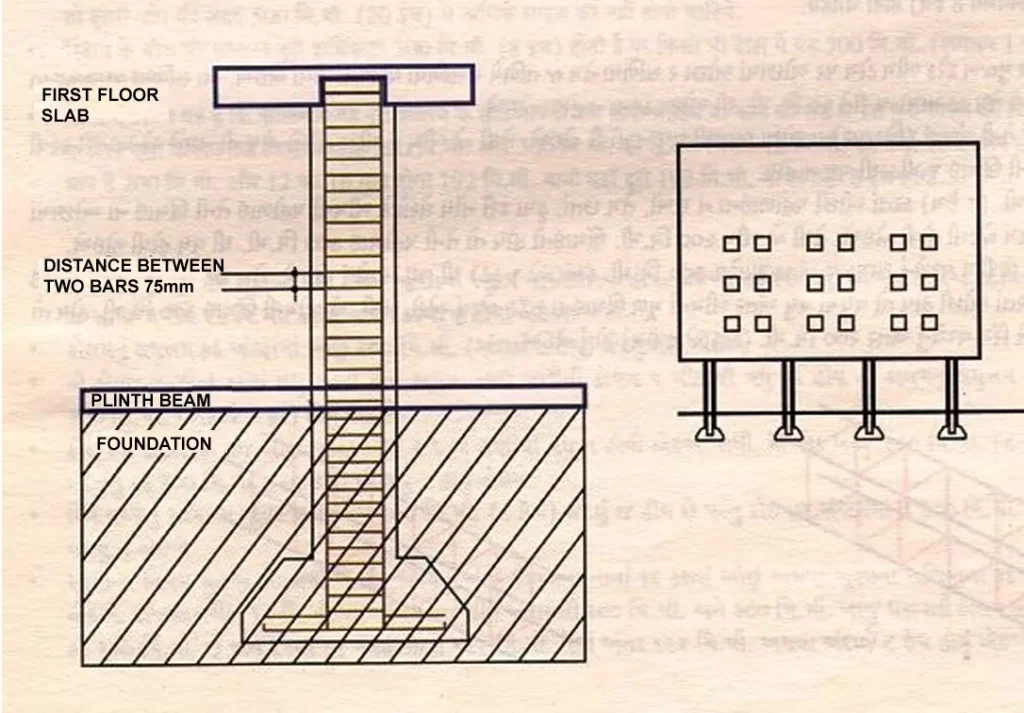
- Stilt columns, that is columns not supported by walls on either side and in both directions can be safely used provided the basic rules are followed. There must always be beams at plinth level as shown in the drawing.
- You should ensure that the spacing between stirrups does not exceed 75 mm (about 3 in.) throughout the full height of the column as shown in the drawing.
- This should not only cover the height of the stilt column, but extend additionally for at least 500 mm (about 20 in.) in each direction, above and below where the stilt column ends.
3) What are the basic rules for beams?

- Please make sure each beam has at least 2 rods at the top and 2 rods at the bottom as shown in the drawing. Rods should be of high strength deformed steel, not less than 10 mm size.
- The height of the beam should not be more than ¼ of the span (length) of the beam. So if the beam is 4 metres long, you should make sure that the height of the beam is not more than 1 metre.
- Do not have a beam which is less than 200 mm (8 in.) in width. However, please also note that the width of the beam should be at least 1/3 of the height of the beam. So if the beam is 900 mm high, the width of the beam should be more than 300 mm.
- The normal distance between stirrups throughout the beam should never be more than 300 mm (about 1 ft.). However, if the beam height is less than 450 mm, then the maximum distance will be 2/3 of the actual beam height. So, if the beam height is 300 mm, the spacing in this case should be 200 mm (about 8 in.).
4) What are the basic rules for columns ?
- Each column should have at least four bars, one in each corner. Rods should be of high strength deformed steel, not less than 12 mm size.
- The minimum size of a column should be at least 200 mm (about 8 in.)
- If the column is more than 4 metres long or if the next column is spaced more than 5 metres away, the minimum size of a column should be at least 300 mm (about 1 ft.).
- No side of the column should be more than 2 ½ times the other side. So, if one side is 200 mm (8 in.), the other side should not be more than 500 mm (20 in.) in size.
- The normal distance between stirrups is usually 200 mm (8 in.) but in no case more than 300 mm (about 1 ft.).
- The simple rule is that in columns the spacing should be the lesser of the smaller dimension of the column or 16 times the size of the corner bar.
- For example, take a column with sides of 200 mm and 300 mm using 12 mm rods. The smaller dimension is 200 mm, and 16 times of 12 is 192 mm. So, the spacing should be 192 mm or about 8 in.
5) How can I strengthen the laps where rods are joined ?
- When two separate rods are joined by placing them side by side in a beam or column, this is called a lap joint.
- It is essential that you inspect these joints before the concrete is poured since there are several rules that must be followed.
- Please be sure that that the joint is not close to the junction of a beam with a column. A minimum distance of twice the height of a beam should be kept before a lap starts. This means that if a beam is 300 mm high, the lap joint should not start for a distance of at least 600 mm from the junction of the beam.
- Also ensure that the two rod ends are kept side by side for a distance of at least 500 mm (20 in.) if 10 mm rods are being used. If you are using thicker rods, the lap distance should be more.
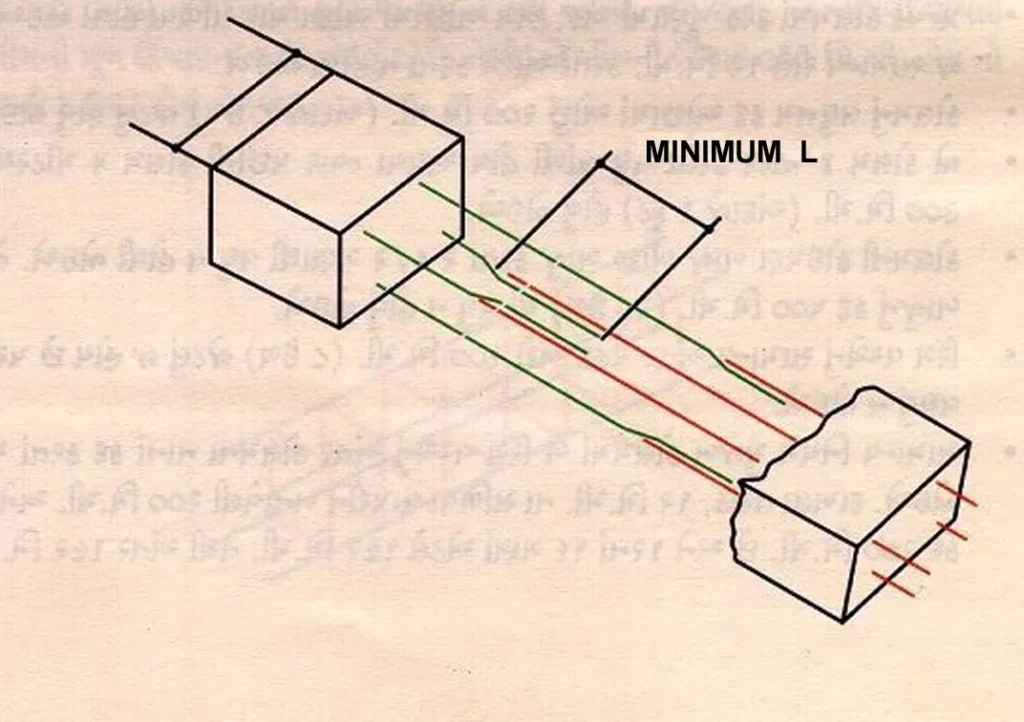
- As shown in the drawing, only half the number of joints can be made at one location. So, if there are four rods, please keep two diagonally opposite joints on one side of the beam, and the other two at the other side.
- In lap joints, the distance between stirrups should not exceed 150 mm (6 in.) for the length of the lap joint.
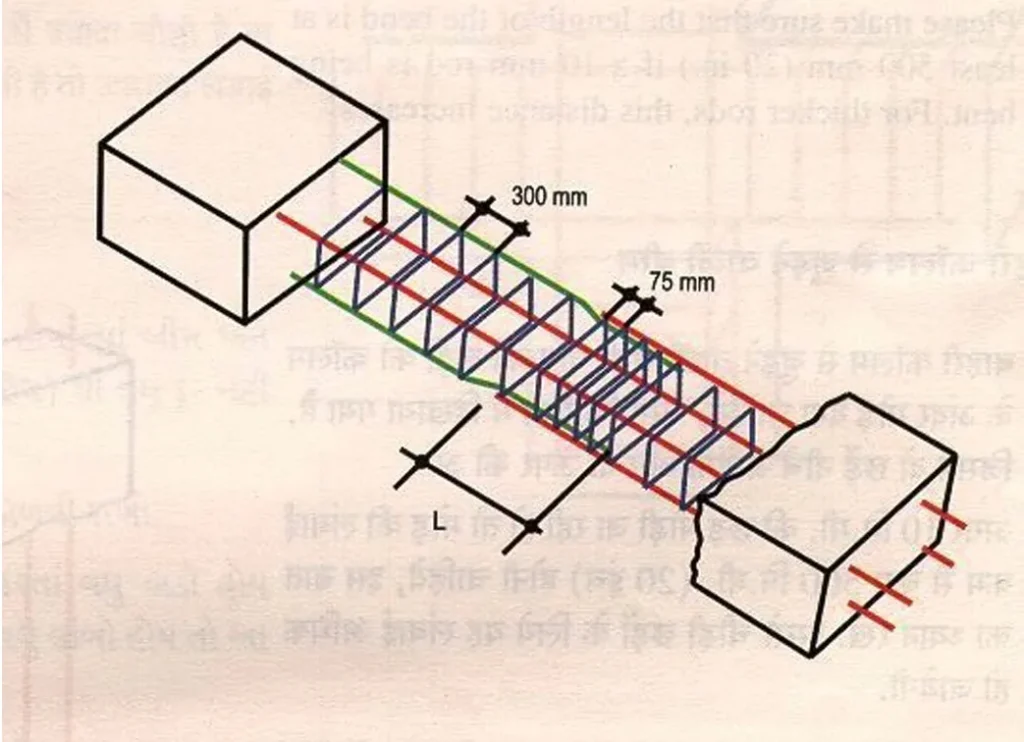
6) How should beams be joined with columns ?
i) A beam joining an external column
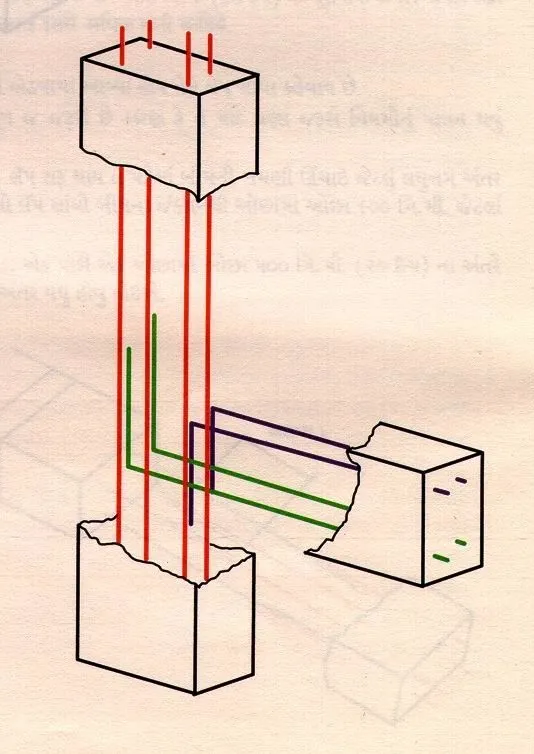
- All bars in beams that end in an external column should be bent into the column as shown in the drawing, two rods going down and two rods going up.
- Please make sure that the length of the bend is at least 500 mm (20 in.) if a 10 mm rod is being bent. For thicker rods, this distance increases.
ii) A beam crossing a column inside a building
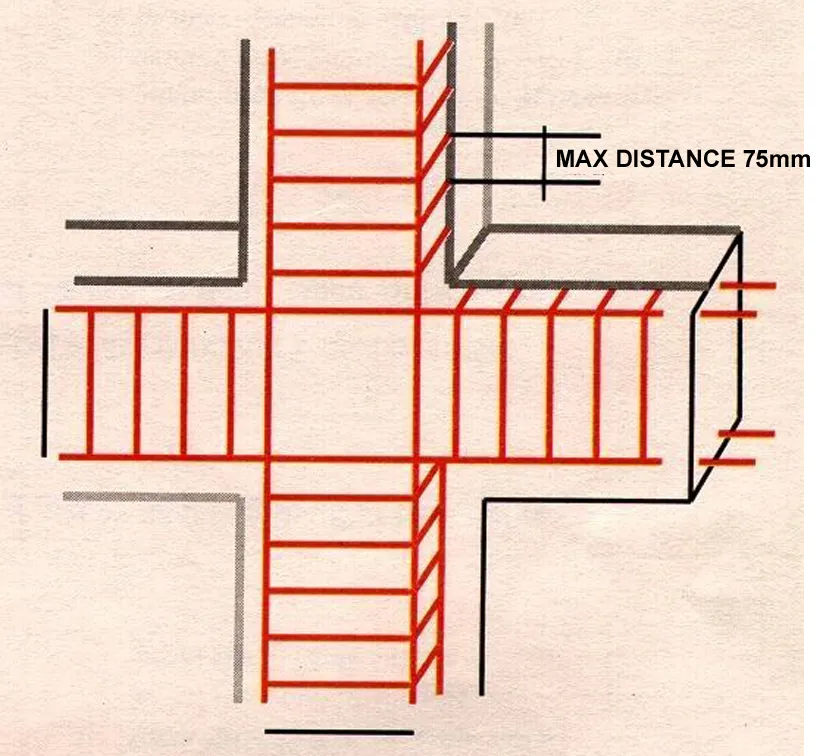
- At the point where a beam crosses a column, the stirrups on the beam and column should be spaced not more than 75 mm (3 in.) apart.
- This should be for a distance of about 600 mm.
- If the beam is more than 600 mm (2 ft.) thick, or more than 3.6 metres (12 ft.) long, this distance should be further increased.
iii) Typical spacing of stirrups (not more than)
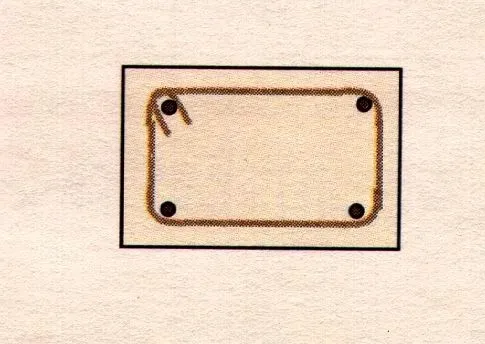

By following these guidelines, you can ensure that the steel rods in your RCC construction project are properly installed and will provide the required strength and durability to the structure.
Hi, all please I need design floor plan for 2 storage house in Tanzania